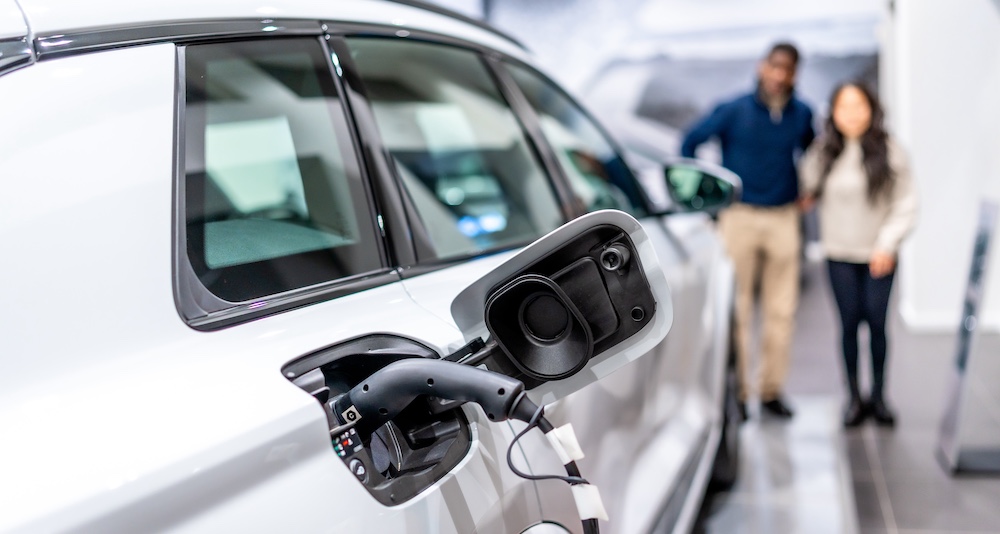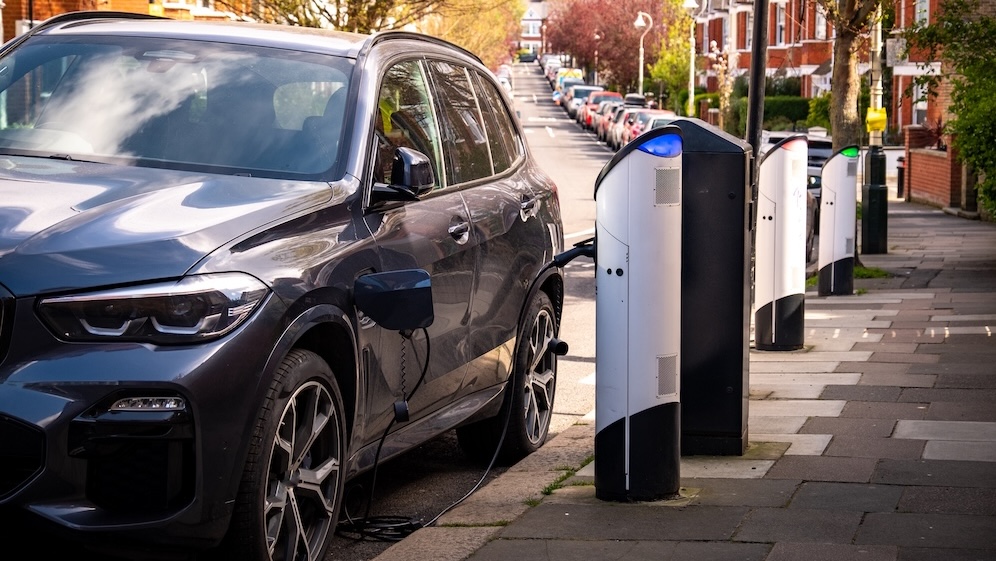Should I buy a used EV? Pros and cons of new vs used electric vehicles
Choosing between buying a used electric vehicle, or go for a new one? Used EVs often cost less upfront and retain strong battery performance. New EVs offer longer ranges and the latest tech, but at higher prices. Compare costs, warranties, battery lifespan and EV resale value to decide which option best fits your budget and driving habits.
If you’ve made the decision to switch to an electric vehicle (EV), the next logical question is ‘should I buy a used EV? Or invest in a new model?’
There are several factors to consider, from purchase price/monthly payments and battery health to EV resale value and warranty coverage. This guide covers everything you need to know when considering buying a used electric vehicle.
The cost of buying a used electric vehicle vs a new EV
One of the biggest barriers to buying an EV is the purchase price or monthly payments, which is often higher than that of internal combustion engine (ICE) vehicles. While the price premium for new EVs over ICE equivalents has dropped from 50% to 22% since 2020 (and is expected to fall further), buying a new EV still requires a higher upfront investment.
By contrast, buying a used electric vehicle can be a more affordable way to make the switch – and drivers are taking advantage. In fact, demand for second-hand EVs continues to grow, with three- to five-year-old electric vehicles becoming the fastest-selling segment in 2024, according to Autotrader.
It’s important, however, to look beyond the initial price tag. While buying a used electric vehicle may cost more than an ICE equivalent upfront, lower running costs for charging and servicing can save you money over time.
Technology: What to expect when you buy a used EV
The EV market is evolving rapidly, and newer models often come fitted with the latest technology – particularly at higher price points. As a result, buying a used EV may mean missing out on some of the most recent features and advancements.
For example, some older EVs have less advanced batteries with shorter ranges, which may require more frequent charging depending on your driving habits. Similarly, very early EVs were fitted with CHAdeMO charging ports, which are now becoming less common. This can make public charging more difficult, as the network transitions toward other connector types.
Newer EVs feature improved battery technologies such as enhanced thermal management and intelligent software that help extend battery life and performance – features you may not find in older models.
That said, the growth of the used EV market means there’s now a wider range of options available. From early, budget-friendly models to nearly new vehicles with more advanced specs. It’s worth researching makes, models and specifications before you buy a used EV to ensure you find the right fit for your needs and lifestyle.
Battery considerations when buying a used electric vehicle
Misconceptions around EV batteries still exist, even in newer models, which can create hesitation when deciding whether to buy a used EV. In reality, modern battery technology has come a long way, making used EVs a reliable and attractive choice.
Battery lifespan and warranty
Battery lifespan remains a top concern to 60% of non-EV drivers, but today’s EV batteries are designed to last far longer than many drivers expect. Reports estimate that most EV batteries can last around 124,000 miles - typically 10-15 years under typical driving conditions.
While all EV batteries degrade over time, the rate of degradation is much slower than commonly believed. Data shows that modern batteries retain around 80-90% of their original capacity after 8-10 years. Therefore, if you buy a used EV less than 10 years old, you can still expect strong battery performance.
However, when buying a used electric vehicle, it’s worth checking the expected lifespan for the make and model you’re considering, as older models may have slightly shorter ranges or older battery chemistry.
For extra peace of mind, most EV manufacturers also provide an eight-year or 100,000-mile battery warranty, covering major faults or excessive degradation. Before purchasing, confirm whether this warranty is transferable to new owners.
Check battery health before buying a used electric vehicle
Although battery degradation is gradual, several factors influence its rate. For example, frequent use of rapid chargers instead of standard charging can accelerate wear, particularly in older EV models.
While you can’t be certain of previous owners’ charging habits, there are ways to assess battery health before you buy a used EV. Many dealers offer independent battery health checks, and some EVs allow you to view battery diagnostics through manufacturer apps. In addition, most EVs are equipped with a battery management system (BMS) that tracks and reports on battery performance over time.
Leased batteries in used EVs
Some older EVs were sold without a battery pack, to help reduce the initial purchase price. Instead, owners leased the battery separately from the manufacturer.
While this arrangement is far less common today, you may still come across leased-battery vehicles when buying a used EV. If you’re considering one, check whether the lease can be bought out, allowing you to convert car to ‘battery owned’ status.
Depreciation and EV resale value
Like all vehicles, EVs lose value over time, but depreciation rates vary depending on factors like manufacturer, age and market demand.
Historically, EVs have depreciated faster than ICE vehicles, due to rapid advancements in technology and misconceptions about battery lifespan.
However, as consumer confidence in EVs grows and the market matures, more people are buying used electric vehicles and EV resale values are beginning to stabilise. Meaning, increased demand for second-hand models is helping to slow depreciation, meaning many newer EVs now retain their value for longer.
Before you buy a used EV, it’s worth researching depreciation trends by model to understand potential resale value.
Conclusion: Should I buy a used EV?
Buying a used electric vehicle can be an excellent alternative to purchasing a new EV, especially if you’re looking to reduce upfront costs. While used EVs may still carry a higher price tag than their ICE counterparts, they offer lower running costs for charging and maintenance over time.
Concerns about battery longevity are still a barrier, despite most EVs maintaining strong performance for at least 10 years or 100,000 miles.
Although depreciation has been faster for EVs historically, wider adoption and increasing demand are expected to strengthen EV resale values even further in the coming years, helping to protect your investment.
Overall, buying a used electric vehicle is a smart and accessible way to go electric, offering long-term savings and sustainability benefits without the higher price of a new model.
For more information on buying and owning an electric vehicle, visit our EV Hub.
Buying a used electric vehicle: FAQs
Are used EVs reliable?
Yes. EVs generally experience fewer reliability issues than ICE vehicles, thanks to their simpler design and fewer moving parts.
How long do used EV batteries last?
EV batteries are designed to last 10-15 years before requiring replacement. Depending on the age of your used EV, the battery could last many more years after you buy it.
What are the benefits of buying a used electric vehicle?
Buying a used EV is typically more affordable than purchasing new, while still offering the key benefits of electric driving – lower running costs, fewer maintenance needs and zero emissions.
What should you check before you buy a used EV?
When buying a used electric vehicle, carry out the same checks as for any second-hand vehicle. You should ask about service history, interior and exterior condition, and book a test drive. In addition, confirm whether the battery is leased, review its health report and inspect the charging cables and sockets.
How much does it cost to tax a used EV?
Depending on when the vehicle was registered, a used EV could qualify for lower road tax. Vehicles registered between 1 March 2001 and 31 March 2017 cost just £20 per year, while models registered between 1 April 2017 and 31 March 2025, pay the standard rate of £195 annually.







